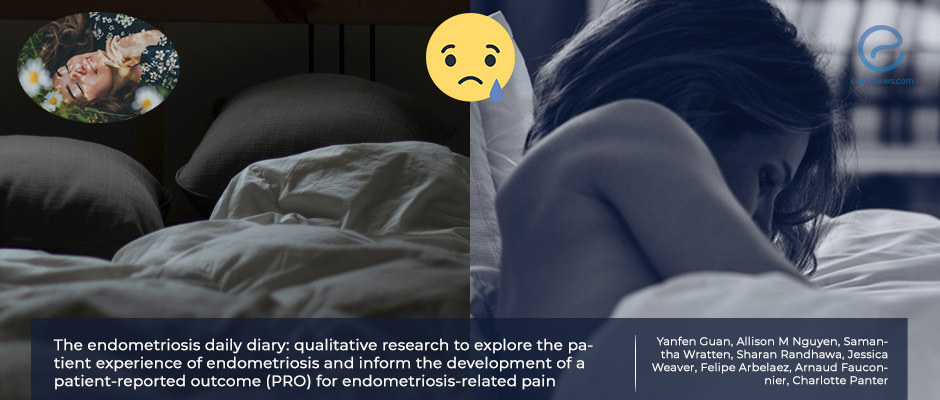Pain During Intercourse, What Does it Feel Like?
Mar 11, 2022
Women with endometriosis experience pain during intercourse caused by the disease in different ways.
Key Points
Highlights:
- Women with endometriosis experience pain during intercourse in different ways.
Importance:
- Describing the pain that women with endometriosis experience could encourage researchers and clinicians further investigate this understudied symptom of the disease.
What's done here:
- Semi-structured interviews with 17 women with endometriosis who experience or have experienced endometriosis-associated pain during intercourse were conducted.
- The aim is to obtain a description of the pain with their own words.
Key results:
- The endometriosis-associated pain during intercourse was heterogeneous in terms of presentation, severity, and impact.
- The pain ranged from mild to severe and had a marked psychosocial impact on some women.
- The pain began with initial penetration and was also associated with deep penetration and certain positions.
- The adjectives that women used to describe the pain included “pulling”, “burning”, “stinging”, “sharp”, “stabbing”, and “cramping”.
Limitations:
- The study did not include information about the sexual function of the women including desire, arousal, and orgasm.
- Because participants were not selected based on the surgical diagnosis of endometriosis, the relationship between the stage of the disease and the experience of painful intercourse could not be established.
- All participants in the study had previously discussed the sexual pain they experienced with a healthcare provider, which could have affected how they described it in this study.
- All participants in the study were white, college-educated, heterosexual, and had partners. The findings of the study might not be valid for other groups.
Lay Summary
The presentation, severity, and impact of painful intercourse caused by endometriosis differ between patients, found a new study published in The Journal of Sexual Medicine.
According to the authors of the study, these findings are important because they can help develop better patient-reported outcome measures of this symptom.
Dyspareunia or painful intercourse is one of the 5 main symptoms of endometriosis. Despite the fact that it can have a considerable impact on a woman’s quality of life and relationships, endometriosis-associated dyspareunia is understudied.
Here, a team of researchers led by Dr. Susan M. Cox from the School of Population and Public Health, the University of British Columbia in Vancouver, Canada conducted a qualitative study to characterize the physical experience of women with endometriosis who suffer from dyspareunia, in their own words.
The study included 17 participants whose mean age was 33.3 and who currently have or have had dyspareunia in the past due to endometriosis. The researchers conducted semi-structured interviews with the participants, which began with an open-ended question about dyspareunia and which was followed by prompts related to the nature of the dyspareunia.
The results showed that dyspareunia experienced by the participants ranged from mild to severe. For some patients, it had a “marked psychosocial impact”.
The participants reported that the pain began with initial penetration and included “pulling, burning, and stinging" sensations.
Patients also described pelvic pain associated with deep penetration or certain positions as being “sharp, stabbing, and cramping”.
The women, managed the pain using a variety of treatments and strategies.
“We hope that by providing a comprehensive description of endometriosis-associated sexual pain, this work will be hypothesis generating and will contribute to rigorous investigation of dyspareunia in endometriosis,” the researchers wrote.
Research Source: https://pubmed.ncbi.nlm.nih.gov/33291043/
Dyspareunia interview pain pain during intercourse

